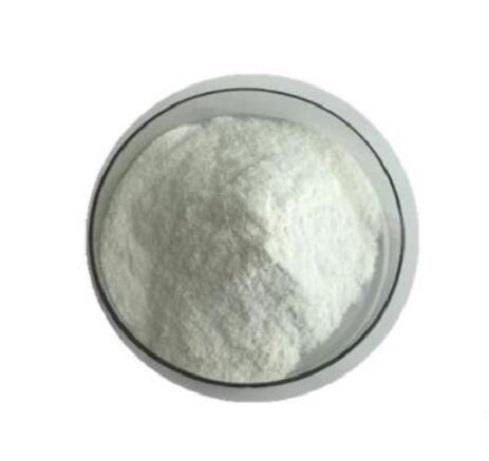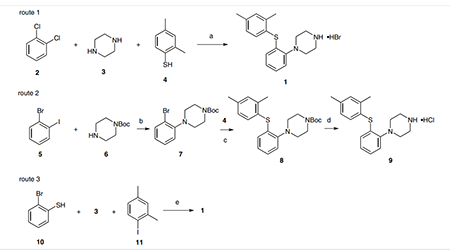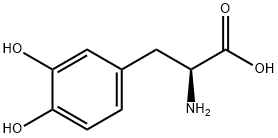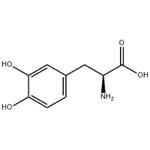Side effects of Levodopa
Jan 17,2022

Uses
Levodopa is the precursor to dopamine. Most commonly, clinicians use levodopa as a dopamine replacement agent for the treatment of Parkinson's disease. It is most effectively used to control bradykinetic symptoms that are apparent in Parkinson's disease, and it is the most effective medication to improve the quality of life in patients with idiopathic PD. Levodopa is typically prescribed to a patient with Parkinson's disease once symptoms become more difficult to control with other antiparkinsonian drugs. The drug is also useful for post-encephalitic parkinsonism and symptomatic parkinsonism due to carbon monoxide intoxication.
Mechanism of Action
Degeneration of the substantia nigra occurs in patients with Parkinson's disease. This condition results in the disruption of the nigrostriatal pathway and thus, decreasing the striatal dopamine levels. Unlike dopamine, levodopa can cross the blood-brain barrier (BBB). Levodopa converts to dopamine in both the CNS and periphery.To increase the bioavailability of levodopa and decrease its side effects, it is often administered in combination with peripheral decarboxylase inhibitors (such as carbidopa and benserazide). Dopamine decarboxylase inhibitors prevent the conversion of levodopa to dopamine in the periphery, allowing for more levodopa to cross the BBB. Once converted to dopamine, it activates postsynaptic dopaminergic receptors and compensates for the decrease in endogenous dopamine.
Metabolism
Levodopa is either converted to dopamine by aromatic-L-amino-acid decarboxylase or O-methylated to 3-O-methyldopa by catechol-O-methyltransferase. 3-O-methyldopa cannot be metabolized to dopamine. Once levodopa is converted to dopamine, it is converted to sulfated or glucuronidated metabolites, epinephrine E, or homovanillic acid through various metabolic processes. The primary metabolites are 3,4-dihydroxyphenylacetic acid (13-47%) and homovanillic acid (23-39%).
Side effects
The common adverse effects of Levodopa treatment are nausea, dizziness, headache, and somnolence. Increasing carbidopa is recommended to relieve nausea, and domperidone can be helpful if additional carbidopa is ineffective. Special precaution is necessary for elderly patients because they may be more sensitive to the central nervous system (CNS) effects. The most common side effects in older patients taking levodopa can be confusion, hallucinations, delusions, psychosis, and agitation.There may be a greater risk of hip fractures in older adults as well due to levodopa mildly increasing homocysteine levels as an adverse effect. Patients presenting with an idiopathic parkinsonian disorder and who are on levodopa can also develop low serum vitamin B12, elevated methylmalonic acid levels, and greater chances of sensorimotor peripheral neuropathy.
Abrupt withdrawal or dose reduction of levodopa is associated with an increased risk of neuroleptic malignant syndrome (NMS). This condition has been termed parkinsonism hyperpyrexia syndrome. Hyperthermia, involuntary movements, and muscle rigidity are seen in severe cases. Management includes replacing levodopa at the prior doses and aggressive supportive care in an intensive care unit.
- Related articles
- Related Qustion
- Levodopa: A Breakthrough in Parkinson's Disease Treatment Jun 25, 2024
Levodopa, is a cornerstone in the treatment of Parkinson's disease (PD), a neurodegenerative disorder that affects millions worldwide.
- The review of levodopa Mar 29, 2022
Levodopa is a precursor drug of dopamine (DA), which has no pharmacological activity.
Vortioxetine hydrobromide is an atypical antidepressant made by Lundbeck and Takeda.....
Jan 17,2022APIProtocatechuic acid has inhibitory effects on white and Staphylococcus aureus, Streptococcus pneumoniae, Streptococcus A, Haemophilus influenzae, Pseudomonas aeruginosa, Escherichia coli, and Proteus.....
Jan 17,2022API








